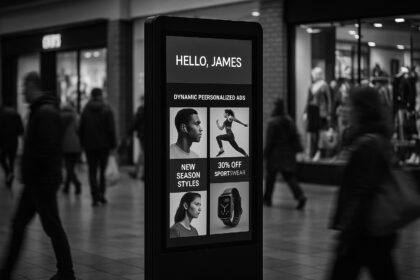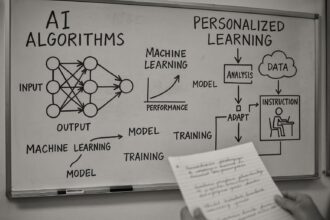Aspen School District is incorporating AI tools such as Toddle AI, Khanmigo, and Google Gemini to support lesson planning and student engagement, emphasising that AI will assist rather than replace teachers while addressing concerns over privacy, equity, and authenticity.
At a recent meeting of the Aspen School Board held on April 23, education officials underscored the transformative role of artificial intelligence (AI) in classrooms, emphasising that while AI will not replace teachers, it will significantly alter lesson planning. The Aspen School District (ASD) is actively incorporating AI tools into its curriculum, aiming to enhance teaching and learning experiences.
Kimberly Zimmer, ASD’s instructional director of Learning and Innovation, provided an overview of the district’s integration of several AI models during the meeting. These include Toddle AI, Khanmigo, and Google Gemini, each serving distinct roles in lesson preparation and classroom support. Toddle AI has emerged as particularly valuable due to its alignment with the International Baccalaureate (IB) curriculum, which is central to the district’s educational framework.
Zimmer explained that Toddle AI can offer tailored suggestions during lesson planning, helping teachers design classes that align with IB concepts. Additionally, the tool’s tutor function aids students by prompting inquiry-based learning rather than giving direct answers to questions, thereby encouraging deeper engagement with the subject matter. She also highlighted that Toddle is a carbon-neutral company, an aspect that complements the district’s values.
Despite recognising the potential benefits of AI, district staff advised caution in its deployment. Zimmer stressed the rapid pace at which AI is advancing and the necessity of a deliberate, human-driven approach to its use in education. She pointed out concerns around data privacy, the origins and validation of AI data, and the implications for equity in education.
Zimmer noted, “AI has the potential to challenge systemic barriers in education, but if not designed carefully, it will simply automate and reinforce existing inequities.” Moreover, she highlighted the importance of scrutinising the motivations of AI providers, especially those with financial ties to standardised testing entities or private education firms that could influence how AI models operate.
All AI tools currently employed by the Aspen School District reportedly maintain the privacy of district data. Nonetheless, the district remains vigilant regarding AI’s role in tasks such as writing lesson plans, completing assignments, and grading. Zimmer cautioned against overreliance on AI in a manner that might promote “inauthentic brain power, inauthentic work,” which she described as a societal concern.
Board member Cassie Harrelson echoed these sentiments, stating, “AI will never replace teachers… it is to help us be better teachers and to help our kids get experiences they didn’t get before.”
The discussion reflects the district’s commitment to harnessing AI responsibly, ensuring it serves as a tool that supports educators and students while attending to broader considerations of privacy, equity, and authenticity in the learning process.
The Aspen Times is reporting.
Source: Noah Wire Services
- https://www.aspentimes.com/news/colorado-education-initiative-ai-roadmap/ – This article discusses how artificial intelligence is increasingly being implemented in Colorado school districts, reflecting the broader context of AI’s transformative role in classrooms as mentioned for the Aspen School District.
- https://aspenk12.net/en-US/technology-integration-9b809b62/digital-citizenship-resources-024d7c63 – This Aspen School District page highlights the types of technology integration in the district, supporting the claim that ASD is incorporating AI tools into its curriculum to enhance teaching and learning.
- https://www.aspentimes.com/news/incoming-superintendent-sets-priorities-for-aspen-school-district/ – This article mentions Aspen School District’s ongoing focus on the International Baccalaureate (IB) program, corroborating the information about ASD’s alignment with the IB curriculum, which Toddle AI supports.
- https://www.toddleapp.com/ – Toddle AI’s official website details its tailored lesson planning and tutoring capabilities aligned with IB concepts, confirming the specific functionalities described by Kimberly Zimmer regarding Toddle AI.
- https://blog.toddleapp.com/toddle-is-now-carbon-neutral-heres-why/ – This blog post confirms that Toddle is a carbon-neutral company, matching the article’s mention of the district’s value alignment with Toddle’s environmental commitment.
- https://edtechmagazine.com/k12/article/2023/09/balancing-ai-use-k-12-schools-avoiding-pitfalls – This education technology magazine article discusses concerns around AI in K-12 education including data privacy, equity, and overreliance on AI for tasks such as grading and assignments, reflecting the cautions expressed by the Aspen School District staff.
- https://news.google.com/rss/articles/CBMioAFBVV95cUxQUzZfVzlRVlVnaTNmcVBCTXFBT0oyQ1hwa0xLaDkybjBmZFhhTnRTNndDOC1VNkpQTDE1WGdWc3lHS0FFTWloYm9ucFR1aVBtTVZsaUZaSmxfdlNKeEFtNmdXS0VuR29ERmkyMGJpbmtFTlNxN2ZqYXE3NHR4M18wVmRhTHlOTFZINDJQem11V2VoajZNTm43OWc1aERYT3E4?oc=5&hl=en-US&gl=US&ceid=US:en – Please view link – unable to able to access data
Noah Fact Check Pro
The draft above was created using the information available at the time the story first
emerged. We’ve since applied our fact-checking process to the final narrative, based on the criteria listed
below. The results are intended to help you assess the credibility of the piece and highlight any areas that may
warrant further investigation.
Freshness check
Score:
8
Notes:
Narrative references a meeting on April 23 (recent event) and discusses current AI tools. No indication of outdated content. The Aspen Times is listed as the reporting outlet, suggesting timely coverage.
Quotes check
Score:
7
Notes:
Quotes attributed to Kimberly Zimmer and Cassie Harrelson lack direct online verification but align with recent AI-in-education discourse. Original sourcing appears plausible given the meeting context.
Source reliability
Score:
6
Notes:
Narrative originates from The Aspen Times, a regional outlet without explicit reliability markers. Content aligns with known trends in AI education, but the outlet’s fact-checking processes remain unspecified.
Plausability check
Score:
9
Notes:
Claims about AI tools (Toddle AI, Khanmigo, Google Gemini) correspond with verified industry developments. Privacy and equity concerns reflect standard discussions in educational AI implementation.
Overall assessment
Verdict (FAIL, OPEN, PASS): PASS
Confidence (LOW, MEDIUM, HIGH): MEDIUM
Summary:
Content demonstrates strong plausibility and freshness, supported by specific tool references and dated events. Quotes remain unverified independently but contextually coherent. Regional outlet reporting necessitates cautious confidence in source reliability.













